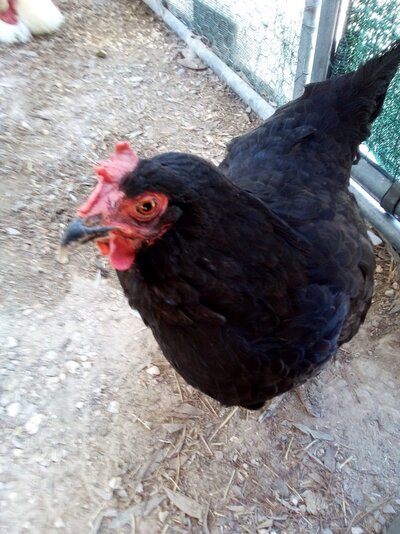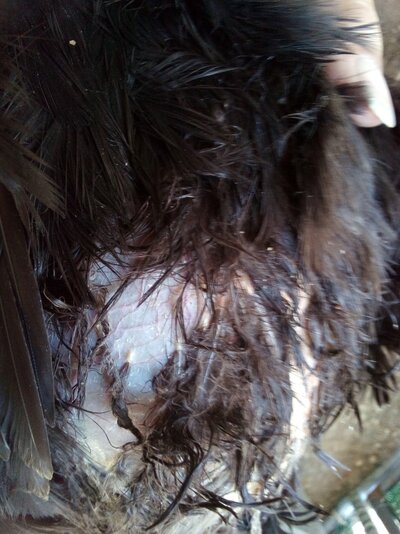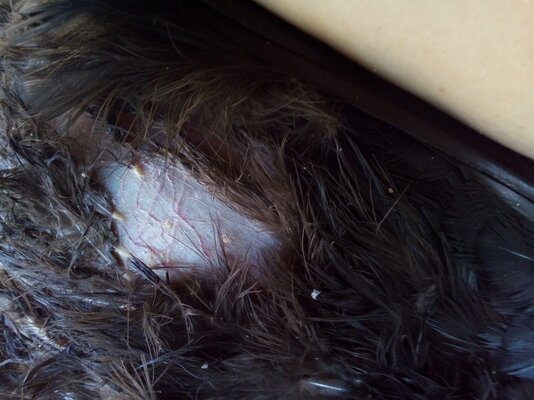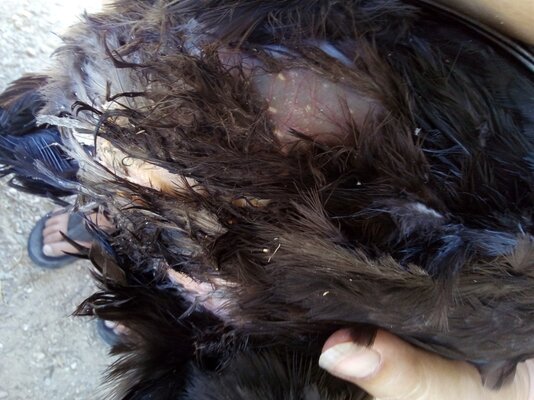I think my 4-year old hen may have water belly, but I'd never heard of it before I started researching her symptoms. I thought she had coccidiosis a few months ago and I thought I'd lose her. However, I treated her and she seemed to recover well but has not laid eggs since.
About 4 weeks ago, she exhibited similar symptom again, so I repeated the treatment but she didn't perk up. She has appetite but is less interested in food than she was. She walks slowly and 'stiffly' now and her droppings, which are small, an odd colour and often watery, smell of ammonia. Although she still preens herself, she has a problem keeping clean so I bathe the area under the vent to keep her clean. While doing this, I recently noticed her abdomen seemed swollen on one side, felt 'squishy' to the touch and was a blue colour beneath the skin. She has lost loads of weight and is very bony, apart from this swollen abdomen. The past few days, this area seems even more swollen, and this morning, it was very warm to the touch; much hotter than the other side of her abdomen. Her skin seems stretched tight.
Please help! Is this water belly? I've read the posts about this condition and will try and drain the fluid if necessary. Some guidance and advice would be much appreciated. Poor Valencia walks with a waddle and is very down. Can I save her?




About 4 weeks ago, she exhibited similar symptom again, so I repeated the treatment but she didn't perk up. She has appetite but is less interested in food than she was. She walks slowly and 'stiffly' now and her droppings, which are small, an odd colour and often watery, smell of ammonia. Although she still preens herself, she has a problem keeping clean so I bathe the area under the vent to keep her clean. While doing this, I recently noticed her abdomen seemed swollen on one side, felt 'squishy' to the touch and was a blue colour beneath the skin. She has lost loads of weight and is very bony, apart from this swollen abdomen. The past few days, this area seems even more swollen, and this morning, it was very warm to the touch; much hotter than the other side of her abdomen. Her skin seems stretched tight.
Please help! Is this water belly? I've read the posts about this condition and will try and drain the fluid if necessary. Some guidance and advice would be much appreciated. Poor Valencia walks with a waddle and is very down. Can I save her?






